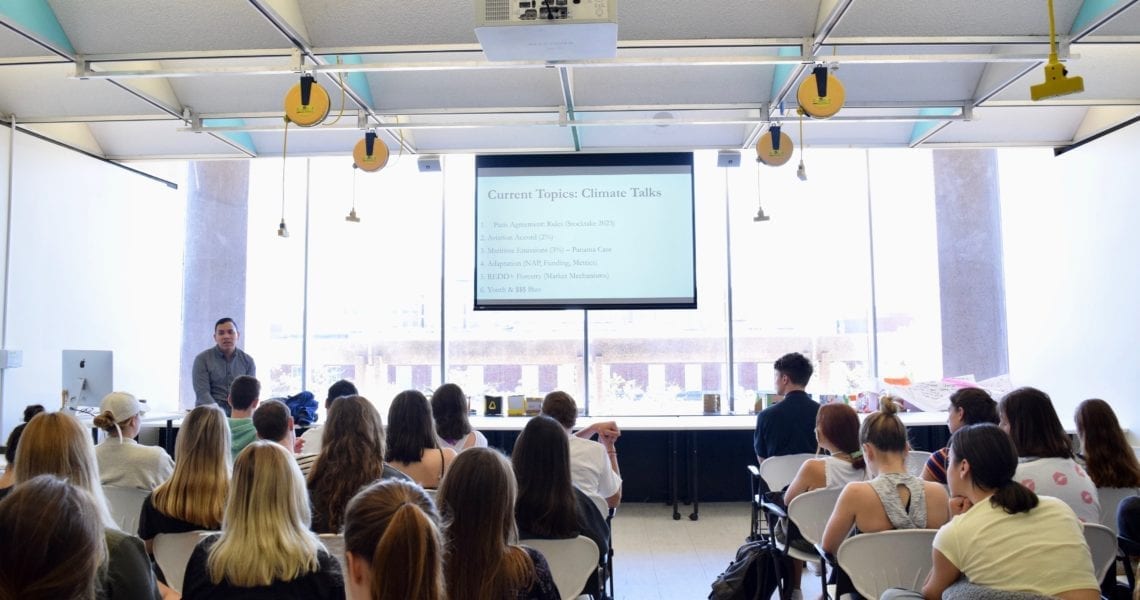
Climate change specialist speaks to students on challenges and opportunities in the field
Juan Carlos Monterrey-Gómez never intended to be negotiating climate change policy at the United Nations barely a year after graduation.
After earning a degree in economics and international development from Tulane University in 2014, the Panama native landed a job in the climate change division of Panama’s Ministry of the Environment. The skills he learned at Tulane quickly came into play as he navigated the complex world of climate policies, laws and initiatives.
“Climate change is perhaps the most pressing issue of our time, and we are quite literally talking about the survival of humans,” Monterrey-Gómez said to a packed room of Tulane students during a visit to the Phyllis M. Taylor Center for Social Innovation and Design Thinking on April 24.
As a climate change analyst specializing in adaptation and climate finance, Monterrey-Gómez’s work varies from monitoring multimillion-dollar projects to representing Panama at United Nations Climate Talks.
He credited his experience as a Tulane Center for Public Service student fellow for preparing him to manage stakeholders and connect across units at the Ministry of the Environment. At CPS, Monterrey-Gómez helped develop the first iteration of the service learning model for the Social Innovation and Social Entrepreneurship minor. This work involved identifying and recruiting community partners to match with Tulane students, then managing these relationships.
Monterrey-Gómez encouraged students to connect their career ambitions with climate change, noting the many opportunities across fields. “Everything that we do in the future is going to be linked to climate change,” he said.
In his own professional life, Monterrey-Gómez is preparing to shift from government work to start a private consulting firm focused on climate change and microfinancing. The decision was driven in part by a desire to get back to the sustainable human development and human-centered design principles he discovered at Tulane.
“Once I graduated, something very strange happened. I just shut down my past and got adapted too quickly and too easily to government bureaucracy,” Monterrey-Gómez said. He urged students to avoid this pitfall saying, “Please do not stop using the tools that you learn at Taylor – design thinking, all the methodologies, the way of thinking about things, and the perspective you can get from anything and anybody.”